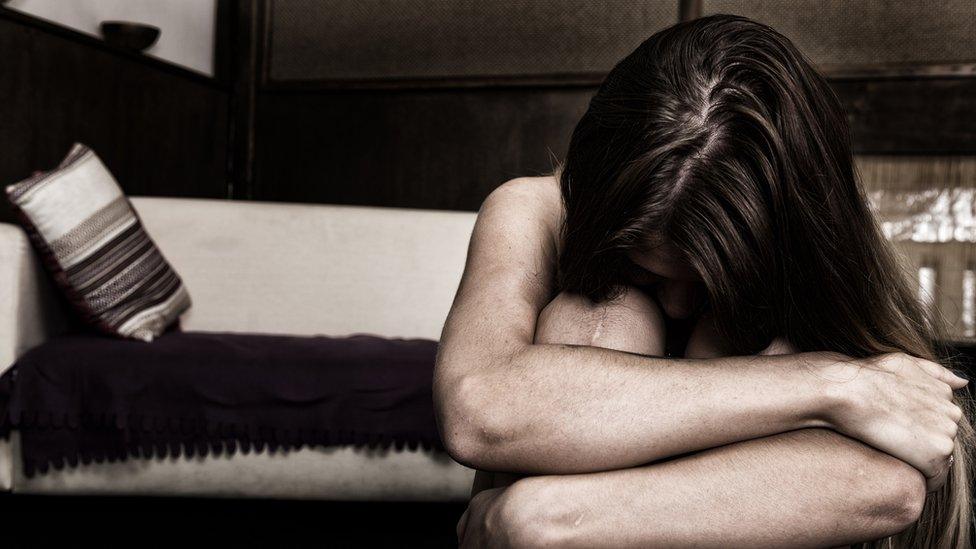'Troubling' delay over domestic abuse treaty, say Lords
- Published

The UK is still not complying with an international agreement to prevent violence against women and girls, eight years after signing up to it.
The so-called Istanbul Convention, external has been signed by 45 countries, but 12 - including the UK - have yet to ratify.
The Lords International Agreements Committee is carrying out an inquiry into the delay, calling it "troubling".
Home Office Minister Victoria Atkins said she would "love" to ratify the treaty, but work to comply was ongoing.
She said: "In many regards [UK law] is exceeding it", adding, "Work to comply means women and girls are being protected, as well as male victims of sexual violence, as we make our journey to ratification."
But Ms Atkins could not give peers a guarantee of when the UK would meet the standards the treaty sets.
The Council of Europe Convention on preventing and combating violence against women and domestic violence - known as the Istanbul Convention - was opened to signatures in 2011.
It was designed to "step up protection from domestic violence" and provide comprehensive standards for tackling it internationally.
The UK signed the agreement in 2012, but it has yet to ratify it, as the country's laws need to meet the standards first.
Poland threatened to withdraw from the treaty in 2020, despite ratifying it in 2015, leading to thousands of women protesting on the streets.
Missing pieces
Ms Atkins, who is the minister for safeguarding, told peers on Monday that there were three areas where the UK was not yet compliant with the Istanbul Convention:
Criminalising psychological violence (only in Northern Ireland)
Extraterritorial jurisdiction - prosecuting a UK national or person who lives here for conduct committed outside the UK
Providing support to victims with refugee and migrant status
The minister said the first two areas were being addressed through legislation in the coming months - the first in a bill in the Northern Ireland Assembly, and the second in the delayed Domestic Abuse Bill.
She also said the government had opened the tendering process for a Support for Migrant Victims Scheme.
But the scheme will be piloted and reviewed and, as a result, peers raised concerns the ratification could be pushed back until 2022 or 2023 by the time migrant support is approved.
'Setting a bad example'
Labour's Baroness Liddell said the council who initiated the treaty was "rather exasperated", and called on all countries to ratify it for the good of "women and all society".
Liberal Democrat Baroness Ludford also said further delay could damage the UK's standing on the issue.
She added: "There is concern that the UK's failure to ratify, possibly for even a further two years, is setting a bad example, or at least not a good one, and isn't it going to rather embarrass the UK's national envoy if it can't send a leadership message on this convention?"
Ms Atkins said the UK was "rightly viewed as a beacon of light for women's rights", even before ratifying the convention.
She added: "We are committed to ratifying as soon as possible, but I cannot give a precise date or the assurance you are seeking."